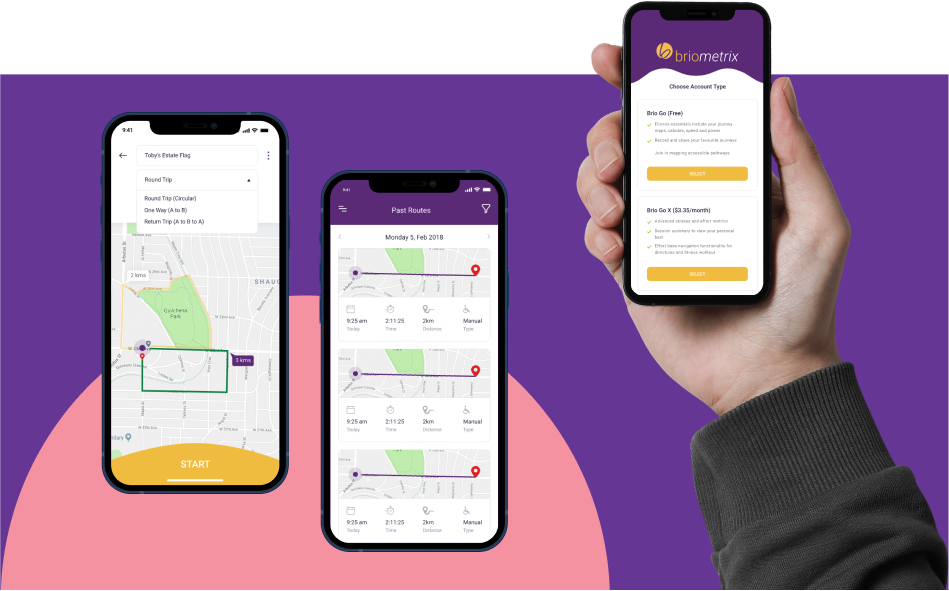Briometrix
UI/UX Design, iOS Development, Android Development, Web App Development, API Development
BACKEND
Cloud: AWS
Operating system: Linux ubuntu server
Languages and runtimes: Java, Python, Octave
Framework: Spring Framework
Database: PostgreSQL
FRONTEND
iOS app: Swift
Android app: Java for Android
Web App: Angular JS
Problem/Requirements
Briometrix had created some patented technology that was able to track biometric data for users in a wheelchair and calculate fitness data. They had a piece of hardware in development that strapped to a wheelchair. The problem was that this hardware was expensive and difficult to install.
The Briometrix team came to Devwiz looking to take the algorithms they pioneered and leverage smart phone biometric readers to calculate that same data without the need for the hardware.
They had already created a proof of concept wheelchair fitness app on iOS but the app was extremely bloated and caused the phone battery to deplete incredibly fast, as well in certain cases overheat.
They needed a mobile app that collected the data on the smart phone but did all the calculations on an external server.
Our Process
1. Devwiz worked closely with the Briometrix team to understand their current technology and requirements for the app.
2. The Devwiz product specialists put together a road map that outlined our full proposed solution of creating a mobile app that collected biometric data abd sent said info to a serverside solution where calculations were made. The results of this information would then be sent back to the mobile apps, which would be used to display fitness analytics.
3. Once approved, the Devwiz UI.UX designers created a front-end app design in line with their brand strategy and dthe target persona, with heavy emphasis on creating a simple user experience.
4. We developed the Brio Go wheelchair app in line with the approved designs and provided the client’s team with regular updates and apps to test via TestFlight and Google Play (beta testing);
5. We performed internal QA and helped the Briomtrix team manage their beta testers, who were located across the globe.
Outcome
By the end of the development phase, Briometrix had iOS and Android apps that were able to:
- Collect biometric data and calculate "strokes" (the equivalent of steps)
- Analyse energy expanded during workouts
- Collect information, which could be used to derive the difficulty of routes for someone in a wheelchair
The app has been tested and they are now looking to raise for a full commercial launch, which will include the creation of a companion piece of hardware that will improve the accuracy of the information collected.

